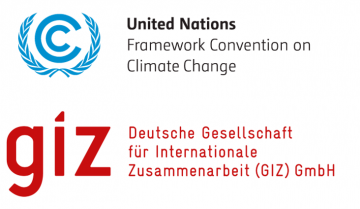
On 14 Nov 2018 (3:00 PM CET), UNFCCC and GIZ are holding the sixth episode of their webinar series, "Methodologies for Baselines and Monitoring in the Transport Sector". This episode will focus on "Freight mode shift from road to other modes". It will feature:
- Marlan Pillay (Program Officer, UNFCCC): Welcome and moderation
- Mr. Fernandez (representative of the Consultative Group of Experts on National Communications from Parties not included in Annex I to the Convention (CGE)): Insight into CGE´s work on MRV and climate action
- Elena Scherer (Advisor, Transport and Climate Change, GIZ): Introduction on freight mode shift chapter 6 of the Passenger and Freight Transport Volume of the UNFCCC’s Compendium on GHG Baselines and Monitoring)
- G. Hedge and E. Cardoso Filho (CDM technical experts, UNFCCC): Applications of CDM methodologies
For more information, please download the Passenger and Freight Transport Volume of the UNFCCC’s Compendium on GHG Baselines and Monitoring and see Chapter 6 on “Shift Mode of Freight Transport from Road to Rail or Water”.
About the webinar series
The series comprises eight webinars and is based on the chapters of the UNFCCC Secretariat’s Passenger and Freight Transport Volume of the Compendium on GHG Baselines and Monitoring. The webinars address primarily government agencies, consultants, think tanks and international cooperation organisations that want to calculate emissions reductions from transport interventions.
Further information on the Passenger and Freight Transport Volume
On 09 May 2017, during the UNFCCC´s 46th session of the Subsidiary Bodies in Bonn, the publication of the Passenger and Freight Transport Volume of the UNFCCC’s Compendium on GHG Baselines and Monitoring was officially launched. The Transport Volume is a multi-stakeholder effort to provide a resource map of methodologies and tools for establishing baselines and monitoring emissions reductions from mitigation actions.It covers more than 30 methodologies and tools, which are structured into eight different mitigation action types.
The transport volume was coordinated by the Deutsche Gesellschaft für Internationale Zusammenarbeit (GIZ) in cooperation with the UNFCCC Secretariat and the Partnership on Sustainable Low Carbon Transport (SloCaT) and funded through the International Climate Initiative of the German Federal Ministry for Environment, Nature Conservation and Nuclear Safety BMU. It was written with the assistance of the Center for Clean Air Policy with contributions from the International Council on Clean Transportation (ICCT) and INFRAS.

